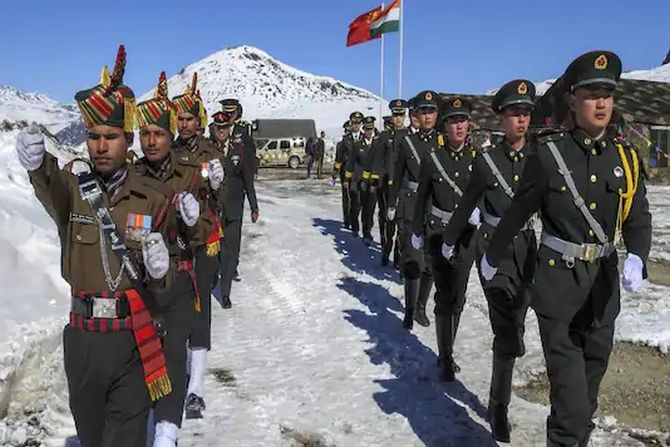New Delhi [India]: The disengagement process between the Indian and Chinese troops, initiated a few days ago, is almost over in Depsang and Demchok, according to Defence sources said on Tuesday.
The Armies of India and China are verifying the vacation of positions and removal of infrastructure by each other there.
After the disengagement process is completely over, coordinated patrolling will commence.
India has been working towards resolving this long-standing dispute to restore the pre-April 2020 situation, prior to the onset of Chinese aggression in the area.
On Friday, the Chinese Foreign Ministry confirmed that frontier troops of both nations are engaged in “relevant work” in line with the agreement reached on border issues.
During a press briefing, Chinese Foreign Ministry spokesperson Lin Jian stated that this work is progressing “smoothly.”
When asked whether India and China had commenced troop withdrawals from friction points, Lin Jian said, “In accordance with the recent resolutions on border issues, the Chinese and Indian frontier troops are engaged in relevant work, progressing smoothly at present.”
On October 21, India announced an agreement with China on patrolling along the Line of Actual Control (LAC) in eastern Ladakh, ending the over four-year military standoff.
Earlier, Prime Minister Narendra Modi met Chinese President Xi Jinping on the sidelines of the BRICS Summit in Russia, where both leaders welcomed the agreement on patrolling arrangements along the LAC in eastern Ladakh.
The meeting followed an announcement from the Ministry of External Affairs (MEA) regarding the new patrolling arrangements along the LAC in the India-China border areas.
The border standoff between India and China, which began in 2020 in eastern Ladakh along the LAC, was triggered by Chinese military actions and led to a prolonged strain on bilateral relations.


